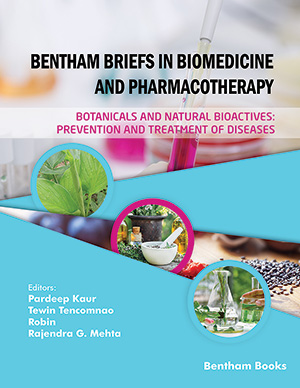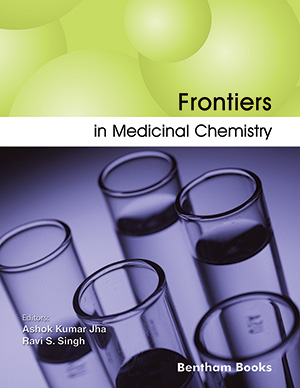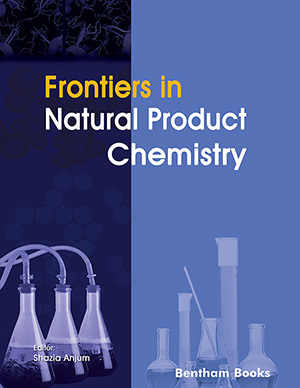Abstract
Cardiovascular diseases (CDs) are the principal cause of death in the world. Anticoagulation is the commonest therapeutic strategy for treatments of CDs in clinical settings. Although possessed of numerous downsides, heparin is the main clinical anticoagulant/antithrombotic agent used so far. Novel sulfated polysaccharides like the marine dermatan sulfate, sulfated fucans and galactans are also able to block clot and thrombus formation. These relatively new marine glycans call special attention mostly due to their unique structures and distinct mechanisms of action. This structural uniqueness is seen by the peculiar aspect of these polysaccharides being made of clear and regular sulfation patterns. The structures have been reported only in polysaccharides from marine invertebrates like sea urchins and cucumbers. This report intends to prove the promising combination of the triad sea-carbohydrates-clotting in drug discovery of the cardiovascular field.
Keywords: Anticoagulation, antithrombosis, carbohydrate-based drug development, sulfated fucans, sulfated galactans, sulfation patterns.
Mini-Reviews in Medicinal Chemistry
Title:Sea, Carbohydrates and Clotting: A Triad on the Road of Drug Discovery
Volume: 14 Issue: 9
Author(s): Vitor H. Pomin
Affiliation:
Keywords: Anticoagulation, antithrombosis, carbohydrate-based drug development, sulfated fucans, sulfated galactans, sulfation patterns.
Abstract: Cardiovascular diseases (CDs) are the principal cause of death in the world. Anticoagulation is the commonest therapeutic strategy for treatments of CDs in clinical settings. Although possessed of numerous downsides, heparin is the main clinical anticoagulant/antithrombotic agent used so far. Novel sulfated polysaccharides like the marine dermatan sulfate, sulfated fucans and galactans are also able to block clot and thrombus formation. These relatively new marine glycans call special attention mostly due to their unique structures and distinct mechanisms of action. This structural uniqueness is seen by the peculiar aspect of these polysaccharides being made of clear and regular sulfation patterns. The structures have been reported only in polysaccharides from marine invertebrates like sea urchins and cucumbers. This report intends to prove the promising combination of the triad sea-carbohydrates-clotting in drug discovery of the cardiovascular field.
Export Options
About this article
Cite this article as:
Pomin H. Vitor, Sea, Carbohydrates and Clotting: A Triad on the Road of Drug Discovery, Mini-Reviews in Medicinal Chemistry 2014; 14 (9) . https://dx.doi.org/10.2174/1389557514666140820121048
| DOI https://dx.doi.org/10.2174/1389557514666140820121048 |
Print ISSN 1389-5575 |
| Publisher Name Bentham Science Publisher |
Online ISSN 1875-5607 |
Call for Papers in Thematic Issues
Bioprospecting of Natural Products as Sources of New Multitarget Therapies
According to the Convention on Biological Diversity, bioprospecting is the exploration of biodiversity and indigenous knowledge to develop commercially valuable products for pharmaceutical and other applications. Bioprospecting involves searching for useful organic compounds in plants, fungi, marine organisms, and microorganisms. Natural products traditionally constituted the primary source of more than ...read more
Computational Frontiers in Medicinal Chemistry
The thematic issue "Computational Frontiers in Medicinal Chemistry" provides a robust platform for delving into state-of-the-art computational methodologies and technologies that significantly propel advancements in medicinal chemistry. This edition seeks to amalgamate top-tier reviews spotlighting the latest trends and breakthroughs in the fusion of computational approaches, including artificial intelligence (AI) ...read more
Natural Products and Dietary Supplements in Alleviation of Metabolic, Cardiovascular, and Neurological Disorders
Metabolic disorders like diabetes, obesity, inflammation, oxidative stress, cancer etc, cardiovascular disorders like angina, myocardial infarction, congestive heart failure etc as well as neurological disorders like Alzheimer?s, Parkinson?s, Epilepsy, Depression, etc are the global burden. They covered the major segment of the diseases and disorders from which the human community ...read more
Natural Products in Drug Discovery
Natural products have always been one of the important ways of drug discovery due to their novel skeleton and diverse functional group characteristics. According to statistics, between 1981 and 2019, the FDA approved a total of 1,394 small molecule drugs for marketing, of which 930 marketed drugs originated from the ...read more
 27
27
- Author Guidelines
- Graphical Abstracts
- Fabricating and Stating False Information
- Research Misconduct
- Post Publication Discussions and Corrections
- Publishing Ethics and Rectitude
- Increase Visibility of Your Article
- Archiving Policies
- Peer Review Workflow
- Order Your Article Before Print
- Promote Your Article
- Manuscript Transfer Facility
- Editorial Policies
- Allegations from Whistleblowers
Related Articles
-
Insulin Resistance in the Early Stages of Renal Failure: Implications for Cardiovascular Risk
Current Diabetes Reviews Therapeutic Value of Statins for Vascular Remodeling
Current Vascular Pharmacology New and Emerging Antiresorptive Treatments in Osteoporosis
Current Drug Safety Ontologies of Drug Discovery and Design for Neurology, Cardiology and Oncology
Current Pharmaceutical Design Implications of Nanotechnology in Healthcare
Nanoscience & Nanotechnology-Asia Changes in the Expression of the Alzheimers Disease-Associated Presenilin Gene in Drosophila Heart Leads to Cardiac Dysfunction
Current Alzheimer Research Clinical Management of Diabetes Mellitus in the Older Adult Patient
Current Diabetes Reviews Efficacy and Cardiovascular Safety of Alpha Glucosidase Inhibitors
Current Drug Safety Vascular Dysfunction and Insulin Resistance in Aging
Current Vascular Pharmacology Evolving Strategies in Manipulating VEGF/VEGFR Signaling for the Promotion of Angiogenesis in Ischemic Muscle
Current Pharmaceutical Design Analgesia in PACU: Nonsteroidal Anti-Inflammatory Drugs
Current Drug Targets Drug Therapy of Neuropathic Pain: Current Developments and Future Perspectives
Current Drug Targets On the Relationship Between the Light/Dark Cycle, Melatonin and Oxidative Stress
Current Pharmaceutical Design Acute Phase Proteins In Acute Coronary Syndrome: An up-to-date
Cardiovascular & Hematological Agents in Medicinal Chemistry Effects of Ox Bile Extract on the Phospholipids and Fatty Acids Membrane Composition of Salmonella enterica Serovar Typhimurium seqA Mutant Strain
Current Chemical Biology Fetal Determinants of Type 2 Diabetes
Current Drug Targets Peripheral Blood Derived Cell Trafficking for Cardiac Regeneration
Current Stem Cell Research & Therapy Targeting Drugs to APJ Receptor: The Prospect of Treatment of Hypertension and Other Cardiovascular Diseases
Current Drug Targets Inhibition of Disulfide Reductases as a Therapeutic Strategy
Current Enzyme Inhibition Organoselenium Compounds in Cancer Chemoprevention
Mini-Reviews in Medicinal Chemistry























